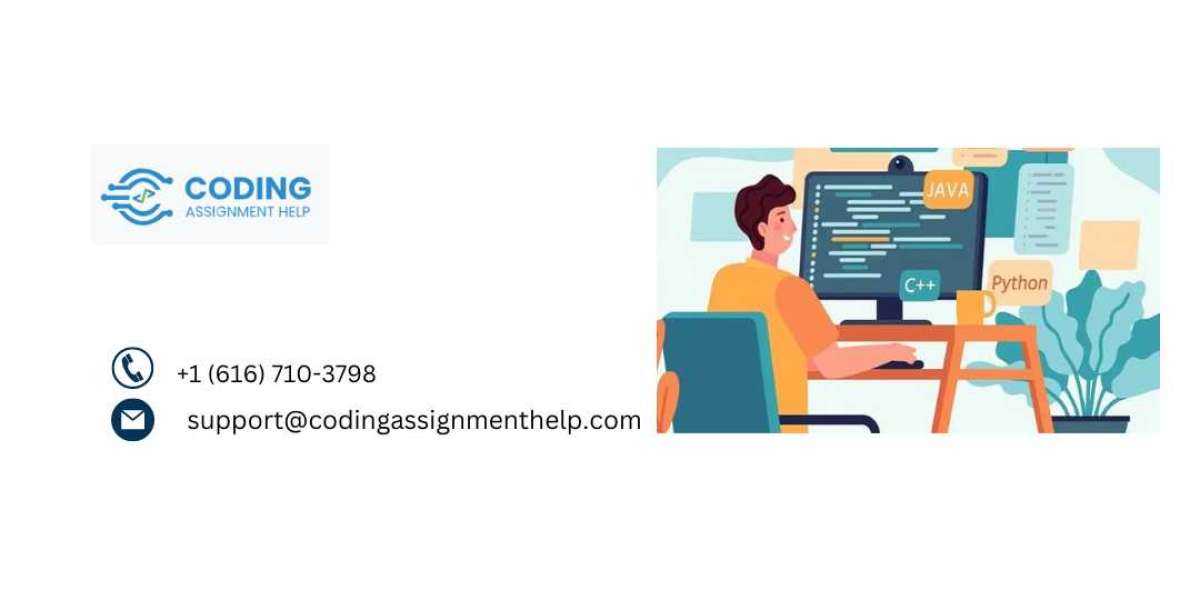Navigating the world of C++ can be challenging for university students, especially when dealing with complex programming assignments. If you find yourself struggling and in need of help with C++ assignment, you're not alone. This post aims to address some common theoretical questions related to C++ programming, helping you grasp the fundamental concepts better. Each question is crafted to deepen your understanding and enhance your problem-solving skills in C++.
Question 1: What are the main differences between C and C++?
Answer: C++ extends C by adding several key features that make it more versatile and powerful:
Object-Oriented Programming (OOP): C++ introduces OOP concepts such as classes, inheritance, polymorphism, and encapsulation, which help in organizing and managing code more effectively compared to C’s procedural programming approach.
Standard Template Library (STL): C++ includes STL, which offers a collection of pre-defined classes and functions for common data structures and algorithms, such as vectors and maps. This feature helps streamline code and improve efficiency.
Function Overloading and Default Arguments: In C++, you can have multiple functions with the same name but different parameters (function overloading). Additionally, C++ allows default arguments for functions, which provides more flexibility in function calls.
Namespaces: C++ introduces namespaces to prevent name collisions in large projects, allowing you to group related code together. This is not present in C, which relies on different strategies to manage names.
Memory Management: C++ provides advanced memory management features, such as constructors and destructors, which are used for initializing and cleaning up objects, as well as dynamic memory allocation with new and delete.
Question 2: How does C++ handle exception handling?
Answer: C++ employs a robust mechanism for handling errors and exceptional situations through its exception handling system:
Try and Catch Blocks: Code that may potentially throw an error is enclosed in a try block. If an exception occurs, it is caught by a corresponding catch block, allowing the program to handle errors gracefully without crashing.
Throw Keyword: Exceptions are thrown using the throw keyword followed by an exception object, which helps in signaling errors to the code that handles them.
Exception Specification: C++ allows you to specify the types of exceptions a function may throw, using the noexcept keyword or exception specifications. This feature helps in ensuring that certain functions do not throw exceptions.
Standard Exceptions: The C++ Standard Library provides a hierarchy of exception classes, such as std::exception, std::runtime_error, and std::logic_error, which can be used to handle different types of errors.
Question 3: What is the role of constructors and destructors in C++?
Answer: Constructors and destructors are special member functions in C++ that manage the lifecycle of objects:
Constructors: These functions are automatically called when an object is created. Their main role is to initialize the object’s attributes and set up any necessary resources. There are different types of constructors, including default, parameterized, and copy constructors.
Destructors: Destructors are called automatically when an object is destroyed or goes out of scope. They are used to release resources allocated by the object, such as memory or file handles, to prevent memory leaks and other resource-related issues.
Question 4: What is operator overloading in C++ and how is it implemented?
Answer: Operator overloading in C++ allows you to define custom behavior for operators when used with user-defined types, making operations more intuitive:
Syntax and Usage: To overload an operator, you create a special function in your class that defines how the operator behaves for your objects. This allows you to use operators in a way that is consistent with the operations they perform on built-in types.
Member vs. Non-Member Functions: Operators can be overloaded as member functions if the left-hand operand is an object of the class. For binary operators, you can also use non-member functions if the left-hand operand is not of the class type.
Conclusion
Understanding the intricacies of C++ programming is essential for tackling complex assignments and projects. By mastering concepts such as the differences between C and C++, exception handling, constructors and destructors, and operator overloading, you'll be better equipped to handle your university assignments with confidence. If you ever find yourself needing additional support, remember that seeking help with C++ assignment can provide the guidance you need to excel. Keep practicing, and don’t hesitate to reach out for assistance when necessary.
 Meet Ups
Meet Ups
 Experiences
Experiences
 Learning Center
Learning Center
 Accommodation
Accommodation
 Roomie
Roomie
 Ride
Ride
 Spread the Word
Spread the Word
 Student Bazaar
Student Bazaar
 Jobs
Jobs
 Blogs
Blogs
 About StudentInsta
About StudentInsta

